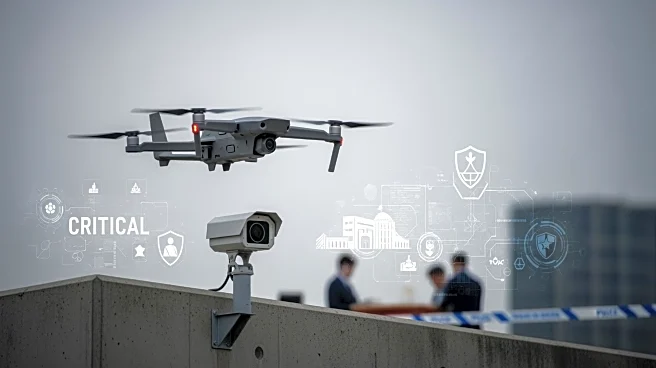What's Happening?
Japan's new foreign minister announced plans to demonstrate the country's commitment to enhancing its defense capabilities during President Trump's upcoming visit to Tokyo. The visit coincides with Japan's ongoing five-year military buildup, which includes
doubling defense spending to 2% of GDP and developing strike-back capabilities with long-range missiles. This marks a significant shift from Japan's postwar pacifist constitution. The government aims to review its post-2027 strategy, potentially increasing military spending further. The ruling party's alliance with the right-wing Japan Innovation Party has raised concerns about Japan's future military roles.
Why It's Important?
Japan's decision to strengthen its military capabilities is crucial in the context of regional security dynamics, particularly with growing tensions in East Asia. The move aligns with U.S. interests in bolstering defense partnerships in the region, potentially leading to increased military collaboration between the two countries. Japan's shift towards a more proactive defense strategy may influence regional power balances, affecting relations with neighboring countries like China and South Korea. The increased defense spending could also impact Japan's economy, with potential benefits for the defense industry.
What's Next?
During President Trump's visit, Japan is expected to face demands to further increase defense spending and purchase more American weapons. The discussions may lead to strengthened military ties between Japan and the U.S., with potential implications for regional security strategies. Japan's government plans to convey its defense plans to the U.S., emphasizing the importance of independent decision-making in national defense. The visit may also set the stage for future negotiations on tariffs and trade agreements between the two countries.
Beyond the Headlines
Japan's military buildup raises ethical and cultural questions, as it challenges the country's postwar pacifist identity. The shift towards a more assertive defense posture may lead to domestic debates on the balance between security and pacifism. Additionally, the increased focus on military capabilities could impact Japan's diplomatic relations, as it navigates complex regional dynamics. The government's alliance with the right-wing Japan Innovation Party may influence future policy decisions, potentially leading to further shifts in Japan's defense strategy.
















